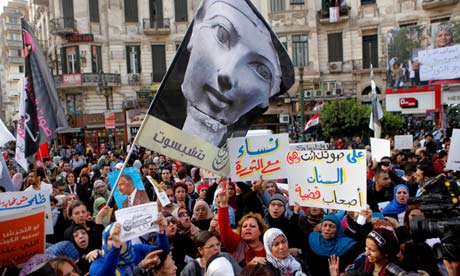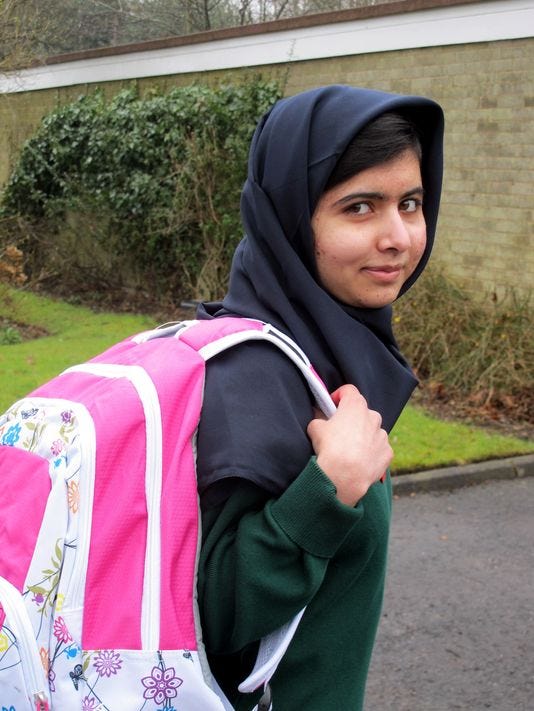The basic story as reported by Radio Free Europe goes this way, "Muslim and Western countries have approved a new United Nations declaration aimed at combatting violence against women and girls. The nonbinding declaration, adopted by consensus by the UN Commission on the Status of Women, says that violence against females cannot be justified or ignored by any "custom, tradition, or religious consideration." The declaration also calls on countries to provide girls and women with sexual education and contraceptives. The declaration was approved on March 15 despite reservations from the Roman Catholic Church, Iran, Russia, and other states (including Syria no less! - Teatree)." The full text - it is quite the document - can be found here http://www.un.org/womenwatch/daw/csw/csw57/CSW57_agreed_conclusions_advance_unedited_version_18_March_2013.pdf
The UN Commission on the Status of Women (CSW) was established in 1946, with the US' recently-bereaved First Lady, Eleanor Roosevelt, making a keynote speech. This year's 57th session was held March 4-15, with the chair and vice chair being women from Liberia and the Philippines. The commission is made up of 45 members among the larger UN body, with the intent of making the group geographically representative. See the UN CSW website for further details ... http://www.un.org/womenwatch/daw/csw/index.html#about
The reactions and reservations, as well as the realities of women's rights around the world are worth examining. The Catholic Church was, of course, concerned over the twining of "contraceptives" and "religious consideration." Russia, as always, was concerned about any declaration not acknowledging the ultimate sovereignty of the state. Egypt's reaction was clearly the most over-the-top, as representatives of the Muslim Brotherhood condemned the declaration, as reported by the Guardian, UK, newspaper, "calling it a decadent and destructive document that undermined Islamic ethics by calling for women to work, travel and use contraception without their husbands' permission.
In a 10-point memorandum, the brotherhood also criticised the declaration for granting women sexual freedom, allowing Muslim women to marry non-Muslims, granting equal rights to homosexual people, and allowing wives full legal rights to take their husbands to court for marital rape. "This declaration, if ratified, would lead to complete disintegration of society, and would certainly be the final step in the intellectual and cultural invasion of Muslim countries, eliminating the moral specificity that helps preserve cohesion of Islamic societies," the brotherhood 's statement claimed."
 The reaction among brave Egyptian women was one of public outrage, which as we all have come to know, is a dangerous position to take in Egyptian society. Women here in Cairo protesting the Muslim Brotherhood for its statement
The reaction among brave Egyptian women was one of public outrage, which as we all have come to know, is a dangerous position to take in Egyptian society. Women here in Cairo protesting the Muslim Brotherhood for its statementAs one contemplates the issues of women's rights and quality of life, the realities are quite sobering.
As the recent rape/murder case in India illustrates, the subservient status of women in that country's varied cultures is a deadly one. Just this week, another woman tourist in India believed she had to jump out a third-story window to escape the advances of the hotel owner. On the other hand, Indian lawmakers have taken up the issue with some force - death penalty for rape if it severely injures, a 20-year upper limit instead of seven year sentence for any rape conviction, stalking and voyeurism addressed, and age of consent raised to 18 from 16. See article Indian parliament to debate bill allowing death penalty for rapists
Click on image for full picture
 Indian women protest against recent case of violence against their gender.
Indian women protest against recent case of violence against their gender. Sex trafficking and virtual slavery in many countries, but often associated with South Asia and some eastern European nations; the myth of a cure for AIDs by sleeping with a virgin remains alive across Africa; genital mutilation in various cultures - all are the extreme negatives.
And we've yet to address the positives - improving women's educational opportunities, independent decision making, programs that provide economic opportunities for raising families (the issuing of micro-loans has been a major advance). Schools and education seem to be key, and just this week, Malala Yousufzai, the young Pakistani woman who was shot by the Taliban for advocating for girls schools, has returned to classes (but in the UK ...), see USA today article here
 Ms Yousufzai, happy to be a student, considering being able to learn "a gift."
Ms Yousufzai, happy to be a student, considering being able to learn "a gift."Teatree believes this broad stream of issues truly is a newsworthy global concern.

1 comment:
As a mother of two young girls I'm watching this influx of discussion about rape (I tend to think that the amount hasn't risen/decreased, just that people are talking about it at the moment)with a mix of horror, hope, and cynicism. The "war on women" phrase that was tossed around in the election has somehow disappeared in the media coverage and yet it seems like this is a much more accurate way to use the phrase - just not as politically beneficial. (I'm leaning towards cynicism obviously) The discussions I have to have with my two girls are really, in this day and age of "enlightenment", depressing.
Post a Comment